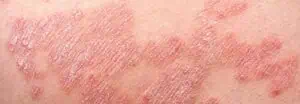What is isotretinoin used for?
In acne, some of these pores become blocked, causing inflamed spots. Isotretinoin belongs to a group of medicines known as retinoids, which are substances related to vitamin A. It is used to treat acne which is severe, or which has not got better with other treatments such as oral antibiotics or skin treatments.
What can I expect when using Isotretinoin?
It reduces the amount of oil released by oil glands in your skin, and helps your skin renew itself more quickly. Isotretinoin is used to treat severe nodular acne that has not responded to other treatments, including antibiotics.
This is an unlicensed use of the drug but many people find it produces considerable benefit and must only be used as advised by your Dermatologist. At the start of treatment the Dermatologist will usually ask you to gradually increase the dose. This is important as if you start at a high dose this may stimulate the glands and exacerbate the problem. Normally the symptoms will come under control over six to eight weeks and then you can try and reduce the dose gradually to find the lowest dose which controls the symptoms.
Isotretinoin is licensed to be used in a dose of one milligram per kilogram body weight a day for 16 weeks for the treatment of severe acne. In lower doses it can be used to reduce unwanted sebaceous gland activity and so improve the overall skin texture etc.
The principle of low dose treatment is to find the lowest dose of isotretinoin which controls the clinical problem and in the first instance maintain this dose for the period of time which equates to you taking the full dose over sixteen weeks as advised by your Dermatologist. In other words if you only have to take half the recommended licensed dose then we would continue the isotretinoin for twice the time (32 weeks). If the problem relapses quickly then we can consider continuous long term treatment as advised by your Dermatologist.
Isotretinoin stays in the system for around four weeks so if you change the dose too quickly the body may not have time to adapt. It is therefore suggested you reduce the dose by one capsule a week every fortnight, or as directed by your Dermatologist. After each reduction in dose a slight flare in symptoms may occur within a few days and then settle. If it doesn’t settle then go back to taking the previous dose and stay on this for a month before trying to reduce again (see below), seek the advice of your Dermatologist.
Find out more about acne treatments
If you need help treating Acne, you may benefit by seeking professional assistance. The expertise and qualifications held by our consultants allow us to offer the highest quality private dermatology consultations, treatments and skin surgery.

Find out more about acne treatments
If you need help treating Acne, you may benefit by seeking professional assistance. The expertise and qualifications held by our consultants allow us to offer the highest quality private dermatology consultations, treatments and skin surgery.

What Side Effects can Isotretinoin cause?
Like all medicines, isotretinoin capsules can cause side effects, although not everyone gets them. Side effects will usually go away when you stop treatment.
Common side effects of isotretinoin capsules happen in more than 1 in 100 people. There are things you can do to help you cope with them:
- Dry skin, eyes, nose or lips
- Other skin problems, including rashes, and mild itching
- Sore or dry mouth or throat
- Headaches
- Back pain and aches and pains in muscles or joints
Speak to your Dermatologist for advice on how to cope with a side effect especially if it is still bothering you or does not go away after reducing or stopping treatment.
It is important for females of childbearing potential to remember that even at low doses isotretinoin can seriously harm a baby in the womb and if you do become pregnant the pregnancy must be terminated.



